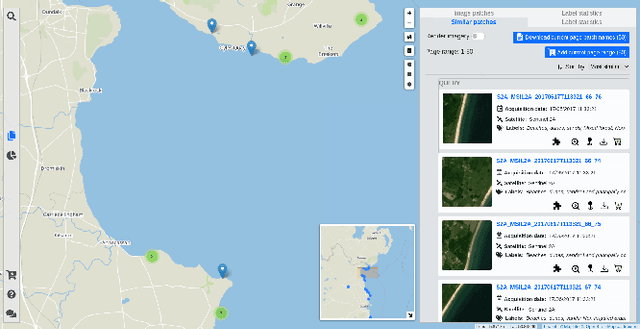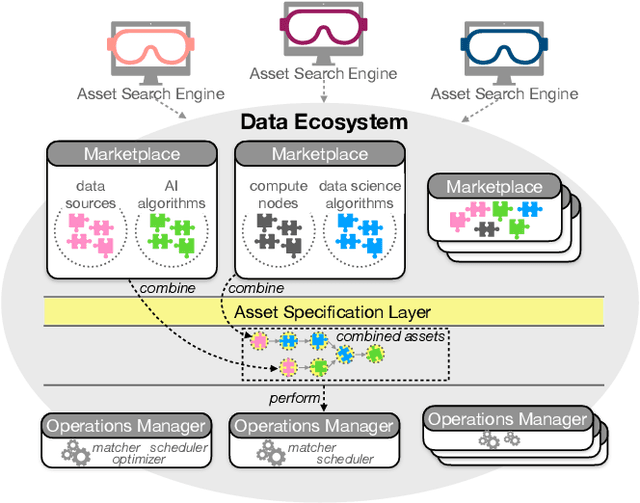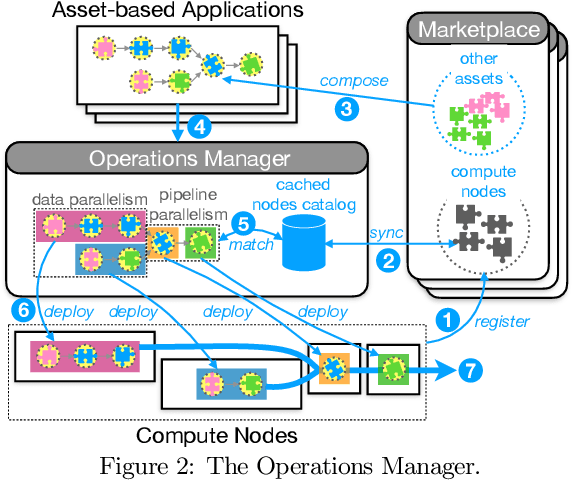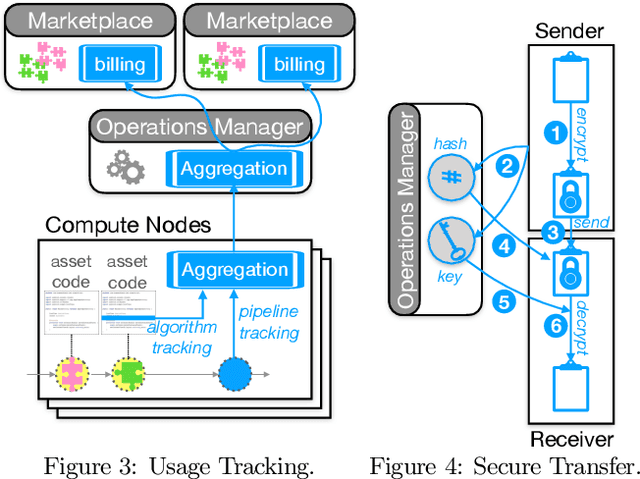Jorge-Arnulfo Quiané-Ruiz
Qatar Computing Research Institute
Artificial intelligence to advance Earth observation: a perspective
May 15, 2023Abstract:Earth observation (EO) is a prime instrument for monitoring land and ocean processes, studying the dynamics at work, and taking the pulse of our planet. This article gives a bird's eye view of the essential scientific tools and approaches informing and supporting the transition from raw EO data to usable EO-based information. The promises, as well as the current challenges of these developments, are highlighted under dedicated sections. Specifically, we cover the impact of (i) Computer vision; (ii) Machine learning; (iii) Advanced processing and computing; (iv) Knowledge-based AI; (v) Explainable AI and causal inference; (vi) Physics-aware models; (vii) User-centric approaches; and (viii) the much-needed discussion of ethical and societal issues related to the massive use of ML technologies in EO.
Satellite Image Search in AgoraEO
Aug 23, 2022

Abstract:The growing operational capability of global Earth Observation (EO) creates new opportunities for data-driven approaches to understand and protect our planet. However, the current use of EO archives is very restricted due to the huge archive sizes and the limited exploration capabilities provided by EO platforms. To address this limitation, we have recently proposed MiLaN, a content-based image retrieval approach for fast similarity search in satellite image archives. MiLaN is a deep hashing network based on metric learning that encodes high-dimensional image features into compact binary hash codes. We use these codes as keys in a hash table to enable real-time nearest neighbor search and highly accurate retrieval. In this demonstration, we showcase the efficiency of MiLaN by integrating it with EarthQube, a browser and search engine within AgoraEO. EarthQube supports interactive visual exploration and Query-by-Example over satellite image repositories. Demo visitors will interact with EarthQube playing the role of different users that search images in a large-scale remote sensing archive by their semantic content and apply other filters.
Agora: Towards An Open Ecosystem for Democratizing Data Science & Artificial Intelligence
Sep 06, 2019


Abstract:Data science and artificial intelligence are driven by a plethora of diverse data-related assets including datasets, data streams, algorithms, processing software, compute resources, and domain knowledge. As providing all these assets requires a huge investment, data sciences and artificial intelligence are currently dominated by a small number of providers who can afford these investments. In this paper, we present a vision of a data ecosystem to democratize data science and artificial intelligence. In particular, we envision a data infrastructure for fine-grained asset exchange in combination with scalable systems operation. This will overcome lock-in effects and remove entry barriers for new asset providers. Our goal is to enable companies, research organizations, and individuals to have equal access to data, data science, and artificial intelligence. Such an open ecosystem has recently been put on the agenda of several governments and industrial associations. We point out the requirements and the research challenges as well as outline an initial data infrastructure architecture for building such a data ecosystem.
 Add to Chrome
Add to Chrome Add to Firefox
Add to Firefox Add to Edge
Add to Edge